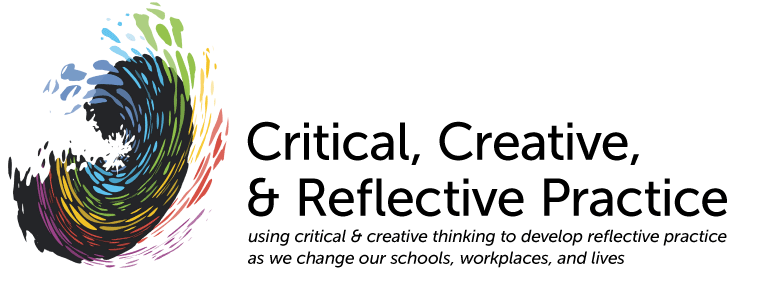The Novice Sage Manifesto
(see Graphic 10)
If there is one basic rule to critical thinking that I, as a novice, have learned it is
DON'T BE AFRAID!
Don't be afraid to ask questions and test ideas, ponder and wonder. There are no wrong questions...but some questions are better than others. Pose questions that further thinking, give you a clear perspective, look for alternative ideas and open doors. Formulate questions that allow greater conversation and additional thinking and give reasons. Find ways to take another avenue when you think you've come to a dead end.
Don't be afraid to have a voice and use it! Listen to all the voices you have and give each of them a chance to be heard. Really hear what each voice has to offer you and the wisdom that comes from each. Give your voices the opportunity to listen to other voices and learn, explore and ask questions.
Don't be afraid to consider other perspectives and put yourself in some one else's shoes. Empathy with the world around you will create greater understanding for yourself. The more information you acquire the greater your knowledge base to forge ahead with new ideas and new thinking.
Don't be afraid to be open to the composite of ideas that surround you (if you look for them). Learning to really understand and empathize with other perspectives will give you a greater knowledge base from which to interpret your own world and formulate thoughts. Never rule anything out until you have sincerely thought it through and made decisions about it.
Don't be afraid to utilize help when you need it. Create a support system that is safe and encouraging. Share ideas in a nonjudgmental, creative and nurturing environment. Go to the 'experts' when you get stuck.
Don't be afraid to question the experts. Ask yourself questions about the expert's paradigm or agenda, but don't become completely skeptical. Learn to balance what you doubt with what you believe or you will find yourself going nowhere fast.
Don't be afraid to gain knowledge through reading, investigating and experiencing. Be as broad as possible so as to have the advantage of knowledge of many sides.
Don't be afraid to listen to the stories being told everyday. Suspend your biases and judgments and listen to those speaking. Encourage those who are not speaking to do so. Facilitate them to find their own voices and to speak freely about their experiences and emotions. Their knowledge becomes your knowledge and all of our knowledge collectively is worth more than any of us singly.
Don't be afraid to recognize your assumptions. Know that every person comes from his or her own unique point of view and learn be cognizant of yours. Allow yourself to confront and challenge your presuppositions in a constructive manner. We can never get away from having biases but confronting them creates a more conducive environment for critical thinking.
Don't be afraid to seek order through strategic thinking. Amidst all of this idea searching, open mindedness and novelty, create concrete ways to strategize, stay focused and clarify. Allow your self to have inner dialogues that reflect and evaluate.
Don't be afraid to re-conceptualize what you know to be true. Relish the epiphanies that will come to you as you begin this process of critical thinking. Tie yourself to your beliefs but allow the changes that will come to enhance your understanding rather than abandon it completely. Then again, if it makes sense to, discard old ideas and adopt new ones.
Do all of this in an atmosphere of reason and reflectiveness. Learn basic principles of logic and inference and learn to apply them to daily life. State arguments that are valid and sound and make connections to give credibility. Understand the difference between cause and correlation and always remember that correlation does not equal causality.
Without a solid and broad basis of knowledge you will be hard pressed to think critically about your environment. Allow your anxieties to explore truer meaning and then work with that new meaning to subdue the anxiety and to move to a next level of learning.
Above all, approach life as an explorer looking to capture all the information possible about the well known, little known and unknown and keep an open mind to what you uncover!
(Source Margie Frangie)
